Get posts by email
So a funny thing is happening to me in grad school
September 20, 2021
This essay is available as 30 minute audio recording.
↓ Audio recording of this post ↓
I’m going to tell you a personal story but that personal story and the conditions of its very existence are nested in a bigger narrative, like all stories are. So I’m going to start there, with that bigger picture.
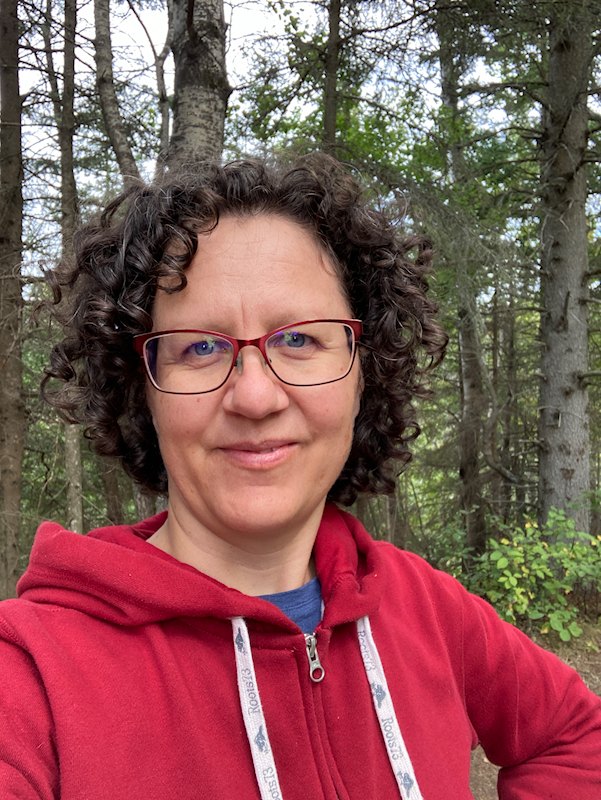
Some thoughts on the broader cultural narrative around work and value
I live in a culture that assigns value and status and even worth to a person based on the amount of money that person makes in exchange for their labor.
This value dynamic is a construct. Humans made this up. And in my particular cultural context, which probably most of you share, there is a certain dominant script about value and status as related to work. There’s a script for everything.
Status is a part of every human society that I know of. (I’m not an anthropologist, if you are one, please correct me here if I’m wrong.) But the types of labor, the roles and responsibilities within a society that confer this status are not fixed. We make those up. (Again, any anthropologists in the room?)
I love learning about the Indigenous cultures of Turtle Island, comparing them to settler and colonial cultures to see the differences in who was (and is) valued and esteemed in society. In my casual observations there is a striking difference between the esteemed members of certain Indigenous cultures as compared to settler cultures.
Indigenous women water protectors are a good example of this. Imagine being esteemed by your culture for your participation in protecting natural resources versus the dominant colonizer culture in which the highest status, as evidenced by monetary wealth, is conferred to those who can extract as much as possible from the Earth.
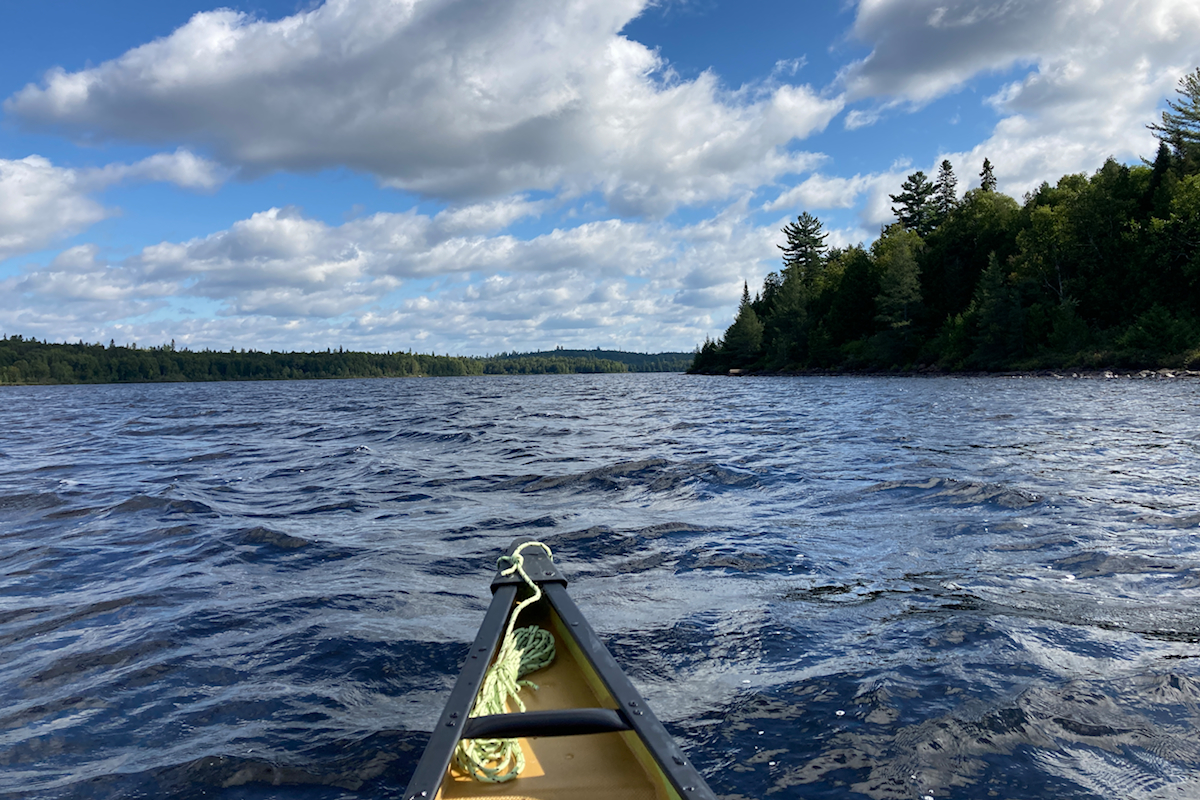
Growing up in a capitalist and neo-liberal society, my conservative and traditional religious upbringing cushioned me somewhat from society’s message of paid labor = value. Where the higher the pay, the higher the value of your work to society.
Religion is responsible for a lot of trauma in individual and collective lives. But at its best, or even in an honest pursuit of best, religion teaches people that the real meaning of life is not found in the pursuit of status. (Of course religious people can pursue status within their own institutions and communities, hence the disclaimer “at its best”.)
In a society where the higher the pay, the higher the value is deemed true, and where the resources we need to live are secured with money, which is acquired in an exchange for labor, I don’t blame the feminists in their fight to get women into the workforce, and paid equally for their labor. Obviously, if this is where value and power is to be obtained well, duh, women have to be there. Because when power and value is held by one group in a society, whether that’s defined by gender, race, religion etc. you’re just a hop, skip and jump away from oppression. So you better believe that I am in support of historically disadvantaged groups and individuals working their way into positions of power in our society.
What I really wish however, is that we could subvert the whole effing enterprise and re-define what has value, according to what is truly good for the flourishing of all beings, including our Mother Earth.
Of course the kind of work you do in exchange for money, and how you land there is not always consciously mediated by power dynamics (though I think power dynamics are always at play in humans). Good gracious, we work because we need to eat and have shelter, because we need to meet basic survival needs, which are met with money in a money culture. Work also gives meaning to our existence and brings satisfaction in a myriad of ways.
Life is work, and here I don’t mean work in the paid labor sense, I mean work in the physics sense where we’re always moving things around with our effort, whether with our brains (like writing this) or with our bodies. We’re doing things, that’s what I mean by work.
And some of this work has a heck-ton of perceived importance in our society. And the way we know which things are deemed as especially important is with how much money the person receives for doing them.
Which is not to say those tasks are, or are not, objectively important. My point here is not to debate or determine the objective, or even relative, importance of different kinds of work. My point here is to say the status conferred on individuals within the culture is subject to the cultural narrative.
And when you’re swimming in a particular culture you might not even stop to evaluate or question this narrative. And for good reason, it can be life-threatening to do so. And even if it’s not literally life threatening, the questioning can ostracize you from the group which is an outcome that an individual in a highly social species, like humans, perceives as life threatening anyway.
I’ll thrown in another heavily qualified endorsement here for religion, or more specifically spiritual awakenings, which I realize are not one in the same. At their best, spirituality and religion can work to disrupt dominant power narratives that advantage certain groups of people over others. And at their worst, they create new power narratives. The fact that they often do more of the latter is a very good reason a lot of people steer clear of religion.
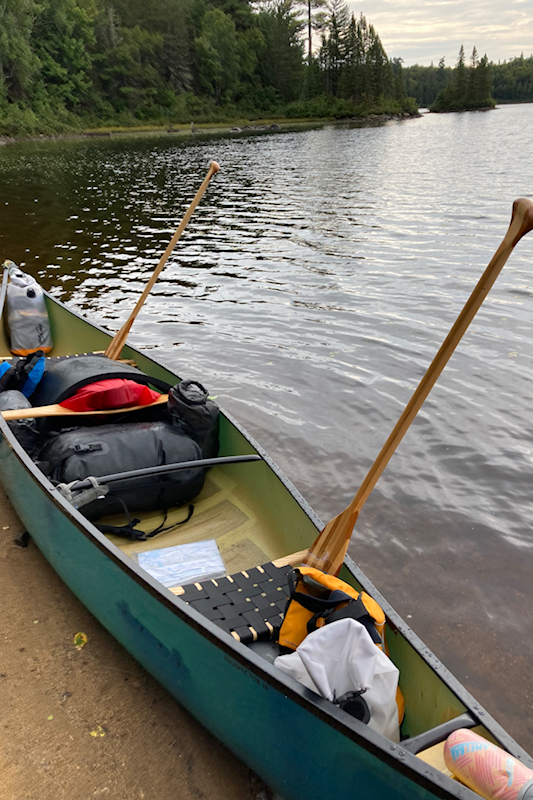
The importance of words
Words and language help us explain reality. Which must be why I’m so compelled to wrangle words to express my experiences. I want to KNOW. I want to UNDERSTAND.
Naming things is one way of understanding things. Interestingly, words and language also create reality, and we should always keep that in mind as we proceed in any kind of “I’ve named it thus, therefore it is” fashion. Ie: Be careful what you call into being with your words.
I go about my days, which is to say my life, observing and interacting with my environment. I evaluate my experiences in that environment. And I ask a lot of questions both about why my environment is the way it is, and why I experience my environment in certain ways. (In addition to the ongoing existential questions: Why am I here? What’s the point of my life? And all the rest.)
Most of my life experiences and observations fall into the “I can’t articulate it very well” category. I don’t know what’s it’s like for other people but the majority of what I believe, experience, and observe remains unexpressed in language because I literally don’t have the words. This is why we need music, art, and poetry. But I still want more words, more words. (Children, this explains why your mother just can’t shut up some times!)
In my limited experience, as an undergraduate and now graduate student, academia seems to be a lot about observing and then giving language to experience and environment. Finding the words (actually making up new words) and then disseminating that understanding with, you got it, more words.
Studying is giving me a language. I’m not saying it’s the “best” language, but it’s something. You literally learn a whole bunch of new words when you study, it’s one of the fundamental definitions of what it means to study something. Those words are tools to help me understand the environment and my experience.
To be sure, it’s giving me a certain kind of language and a specific lens through which to understand my experience. It’s a limited scope, but at least it’s a scope of some kind. And of course there’s bias but that’s the human condition and so everything we touch will be likewise.
Having made all those disclaimers, and recognizing others that I don’t have the time or space to explore here, my point here is that studying is giving me language for things, and this is important to me.
Specifically, it’s giving me language for the modern context of western society in which I often feel at odds.
If you feel things have been a little “heady” up to this point, I’m about to land this in heart and home.
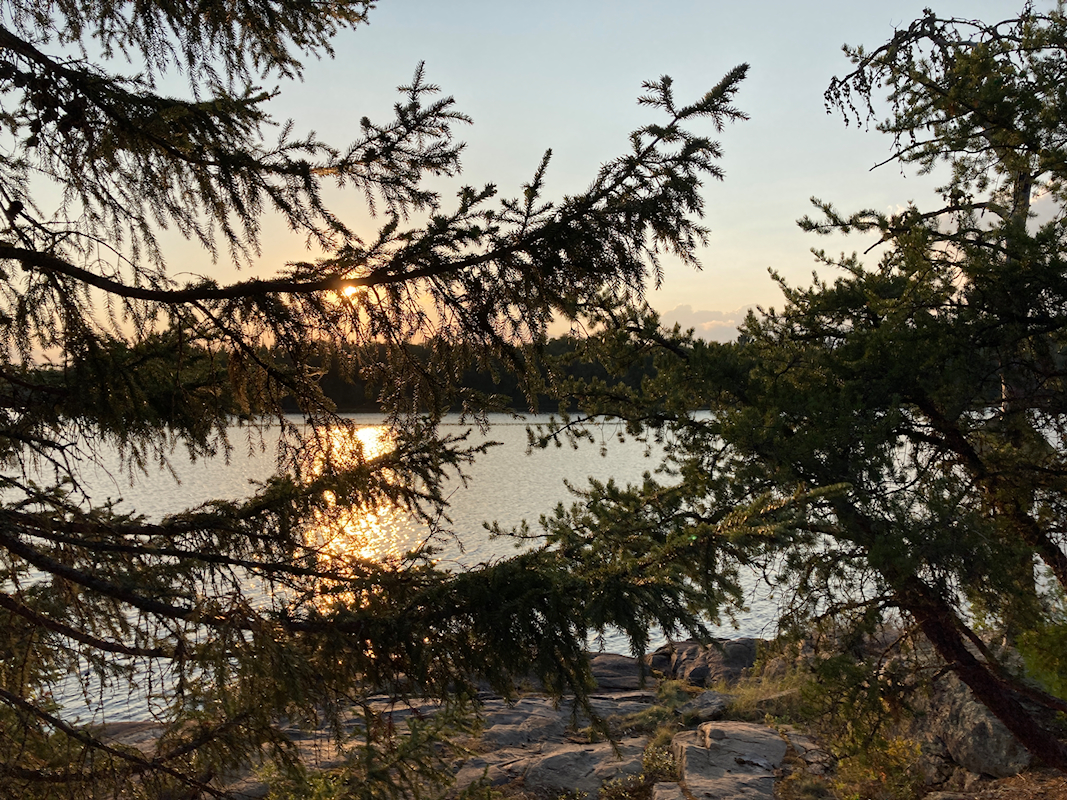
My vision as a young person
As a young person, I had the privilege of being launched out of a family home where individual value was not based on performance. For better or worse, I had a strong internal drive to achieve regardless. And because of my conservative religious context and the micro-culture of my extended family, my goals of being a homemaker and raising children were accepted and valued.
To the great shock of my own children who are in their late teens and early adulthood, at their age I was literally looking for a husband who would share these values and be willing to support me, financially and otherwise, in building a family.
It did not bother me in the least that I was out of step with a large part of the wider cultural context, strong religious and familial ties do that. Woven from the womb, those ties were a basket to contain me, a structure to fortify me from the world. It should be noted here that whatever contains us can also imprison us but the unraveling of the unhealthy parts of that basket came later in my life story and lots of that has already been written here.
Since we’re talking in this essay about economics and work, a salient detail in my personal story is that I grew up with a financial privilege (due to my dad’s work ethic and trade, my parent’s cultural context, and the economic realities of the era) that set, what turned out to be, unrealistic expectations of my own financial prospects as a one income family heading into a new century. The “one income” part is less commonly shared with my generational peers, but the reduced economic means of Gen X children compared to their Boomer parents is well documented. The tension and stress created in my marriage by these expectations clashing with a changing economy are not insignificant.
To the point, I entered adulthood with a vision for family life that was counter-cultural on a few fronts. And because of youthful optimism and naivety, the security of my own childhood, and my trust in my religious tradition and my marriage vows I had zero doubts or reservations about the path I set for myself.
By the time our first child was born, 3 years into our marriage, I had finished my undergraduate degree in Education and I was convinced not only that staying home with my children was best for their development and growth, but that homeschooling them would be even better. And it was my university education that helped convince me of this. I still remember talking with one of my professors, my belly round with child, who expressed disappointment that I wasn’t going to become a classroom teacher upon graduation.
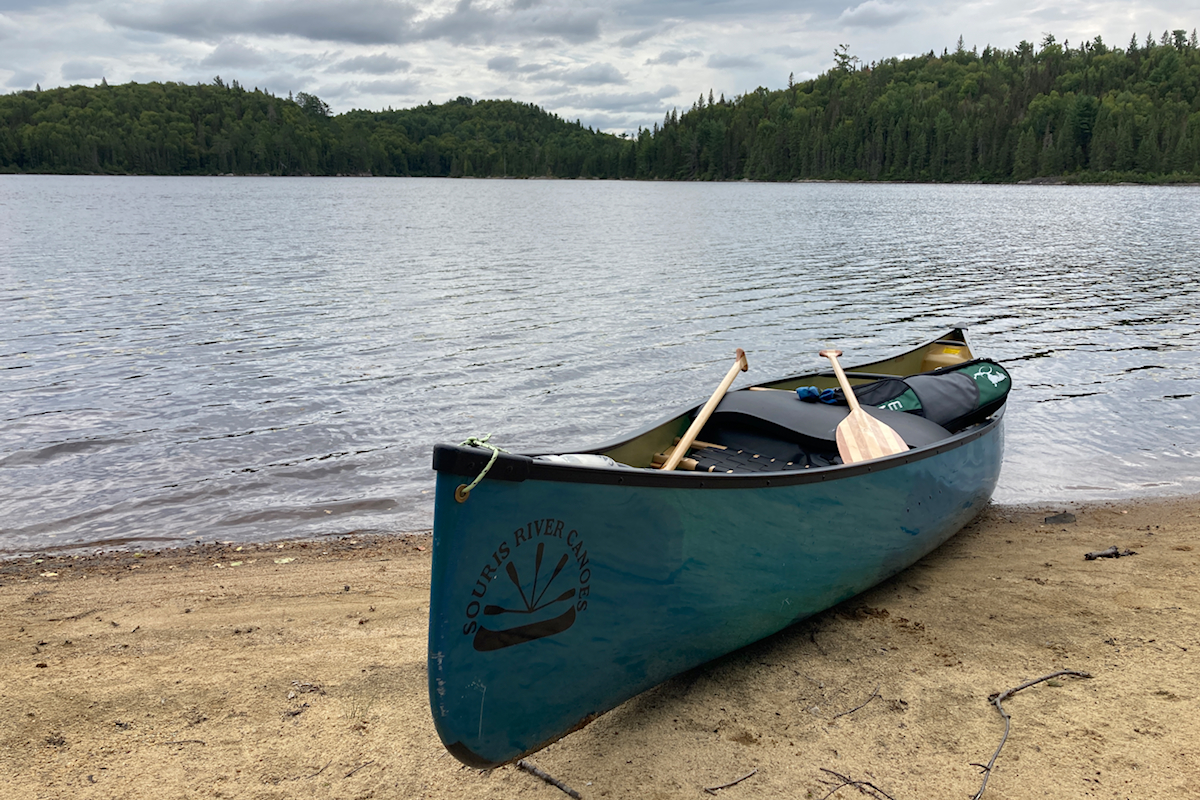
How I felt after raising kids
I’m guessing a lot of people re-evaluate their career choices in their thirties. I know I did. My early adult optimism had been replaced by reality. The financial and social realities of living on one income in a two income culture. The relational realities of understanding yourself and your partner and coming to terms with all the ways your own marriage and family would not meet your expectations. And coming to terms with how you had, deep down, hoped to have all the best of everything.
By the time I reached the end of my child raising years, which was my vocational choice (and privilege) for a solid two decades, years that were focused on creating a counter-cultural (in a myriad of ways) home environment and family culture, years focused on nurturing individual and collective well-being in this unit called family, I was both exhausted and conflicted.
To be clear, I think any good work is likely to leave you spent upon completion. Once upon a time I might have thought of this exhaustion as poor resource management. Now it seems like an inevitable part of being human. (I keep hoping to manage my way out of all human difficulties, but it never works out that way.)
So the exhaustion in itself is not the problem but it wore down my personal defences, as it does. It made me extra-vulnerable to self-doubt at a time when my grown children’s own critique and evaluation of their upbringing was (is) one of the tasks of this stage of development. No freakin’ wonder I miss the innocence of their childhood, when they were largely oblivious to “how different our family is” (their own young adult words) and were along for the ride and adventure of it all.
If you are early on in this parenting journey I’m going to let you on a terrifying secret.
If you raise humans to be independent thinkers because you want them to question their culture and society, if you yourself do a lot of questioning, your kids are going to question the first culture they truly know - the one you created in your home. They will question things you choose for them and did with them, and their assessment of the situation may be different than yours. And that’s the goal!
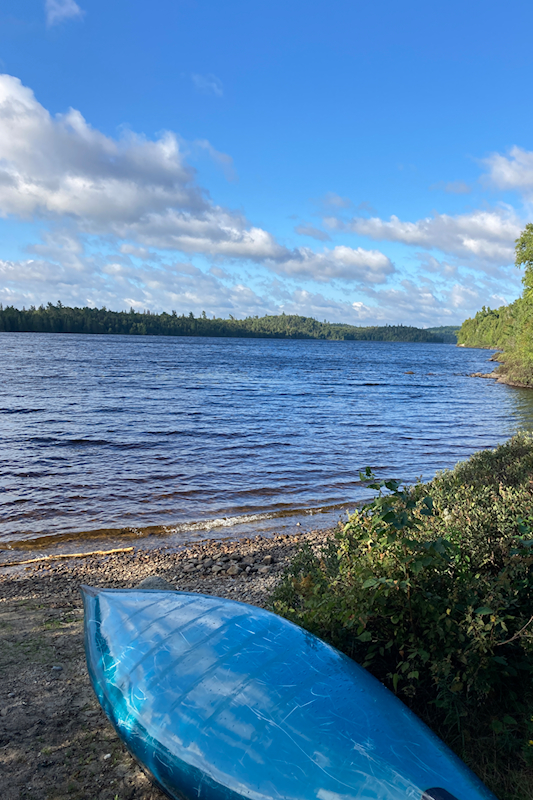
A quick aside about raising and educating independent thinkers.
In education, one of the purported learning outcomes in North American curriculum design is educating “critical thinkers”. What a bunch of baloney when the powers that be, from parents all the way to politicians, aren’t prepared for the implications of critical thinking - a critique of the system, whatever “system” it is. That system might be your family culture, for example.
One of the developmental tasks of the emerging adult brain to “push against”. Which is why I think critical thinking skills are so important, these skills help channel the push back in a less destructive fashion. Which is not to say there won’t be some kind of destruction. After all, we want some destruction. Destruction of oppression and injustices. Destruction of systems where a minority gain at the expense of the majority. Etc. etc. There’s a lot that needs changing in the world and this “push against” energy is part of what makes that happen.
A large mass of critical thinking humans is not in the best interests for those who benefit from power. So I’m deeply suspect to the extent that “critical thinking” is actually encouraged. This is also why I think mass consumer culture works against critical thinking, bread and circuses, and all that.
My point here is that it’s actually a terrifying prospect for those in power, whether they are parents; teachers and school officials; religious or cultural leaders; employers, managers and bosses; politicians and legislators, for the general populace to fully develop their critical thinking skills.
Ok, so where was I? Oh yes, I finished a career in child raising and micro-alternative education exhausted and conflicted. (I was going to be conflicted regardless, that’s how my mind works, which contributes to the exhaustion.) On top of that, the fruits of my labor and my loins were critiquing those years of effort and the outcomes, pretty much exactly as I had raised them to do.
And so there’s been a longish season over the last few years of questioning my counter-cultural choices, everything from family finances to child raising. And yes, this self-critique and evaluation has raised some havoc in our marriage since we made those decisions together.
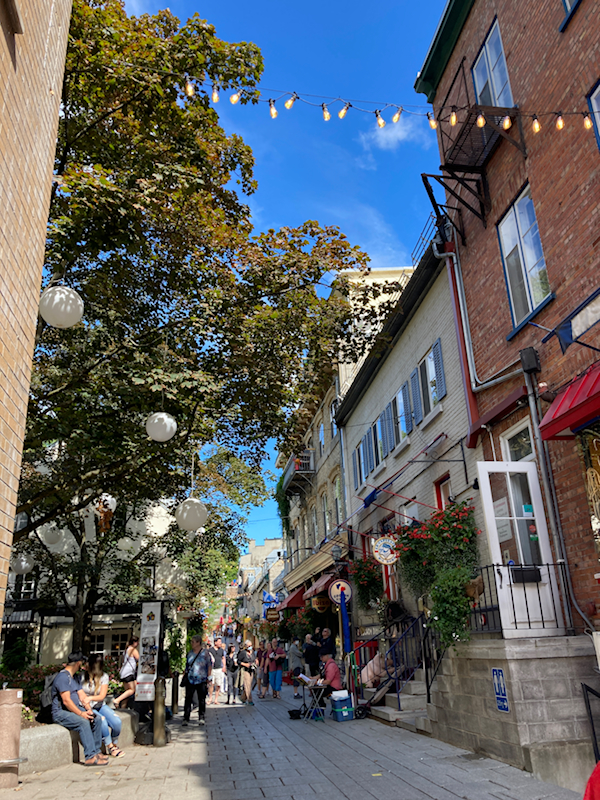
Religious community as a buffer for cultural disconnect
In my early forties I was starting to feel insecure (more than usual) that I was out of step with the wider cultural context, particularly with middle class folks of my age. We’re wired to belong to a group and so I have no shame in this need, just sometimes where I’m looking to find belonging, and especially affirmation, is not the best fit for my values.
I think what made me especially vulnerable to the intensity of the self-doubt and scrutiny of my choices is that I had gone through my own destruction of sorts and left the safety of religious belonging and affiliation.
Religiosity in Canada, and Quebec especially, is very counter-cultural. And if you are religious you belong to a community and there is a strength that comes from the belonging. Religious people are culturally weird where I live but because you belong to a particular group of people, you’re weird together, which makes all the difference.
That sense of belonging gives you strength in some of those religiously-inspired counter-cultural actions and if you happen to be counter-cultural in other ways then you can use some of that religious safety and belonging to help carry your other decision making, especially if you attach religious-meaning to those other decisions. And isn’t this in essence the purpose of religions anyway, to infuse everyday existence and decision-making with meaning and purpose?
Post-deconstruction I am still deeply religious and spiritual. I live as if my everyday existence is infused with meaning and purpose (if that isn’t faith I don’t know what is). But those choices and counter-cultural activities, religious or otherwise, do not feel supported, to the same extent they once did, by an affiliation with a group to which I belong because of doctrinal assent.
Community is super important. And my counter-cultural community for years was the church. My own self-association within that group gave me some security in all the other counter-cultural choices I had made along the way: opting out of pursuing a career and building a home culture instead, homeschooling our kids with little concern for what the state thought they should learn.
In certain religious circles, the ones I came from, these were honored choices for a woman to make, even biblical. Which begs the question, how much did my religious beliefs, and my need to belong to the attending community, influence my choices to begin with? Significantly, to be sure. Recall what I said earlier about being “cushioned by a conservative and traditional religious upbringing”. Of course that culture informed my desires and choices.

Starting Grad School
This year I started my journey towards a masters degree. Because I had my babies when I was young, even after 25 years of building a family and a home I’m still young enough to launch myself into some kind of career for the next 20 years or so of my life. Plus I need to work for us to meet our short and long term life goals, travel and old age savings respectively. This was part of the original plan. Raise the babies, join the paid workforce, have grand adventures.
Because of my keen interest in all things education and pedagogy, plus, you know, years of micro-alternative education practice, I decided to pursue a masters degree in Educational Studies.
If I’m going to be working in society at large, receiving money in exchange for my labor, ideally I want to be participating in and contributing to something I’m fundamentally interested in. Further, I want my work to be advancing human-flourishing policies and practices grounded in particular spiritual and philosophical ideas and principles, similar to my work as a mother and homeschooler. The realm of education seems like a good place to do that. (Right now I work part-time in marketing, so I’ve got some ways to go.)
I want to gain access, at some level, to where decisions are made about education (not necessarily government education). And I want to be paid for my contributions there. If I’m going to work for money, I’d like my labor to earn a decent wage, so I don’t have to do quite so much work for the money, because there are other things I want to do with my time - like care for my home and my people, and also travel. Whether I can achieve all this remains to be seen.
And, to be very honest and to return to one of the central theme’s of this essay, after years of working in a low-status societal position (with high personal value and meaning), I think part of my motivation in pursuing another degree is the quest for some legitimacy, some accreditation that will not just help me get into the places I want to influence, but will prove my worth and value to others.
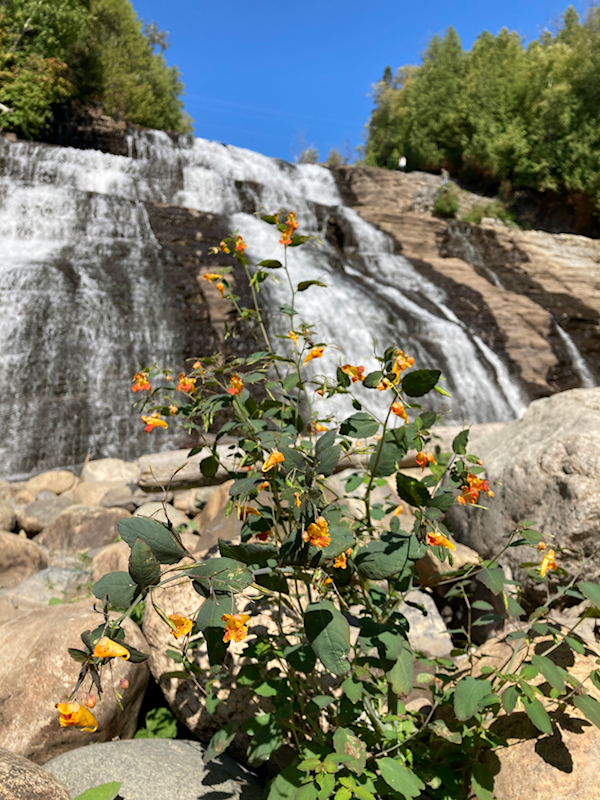
The contradictions of my courage
It takes some courage and a measure of privilege to step out of a system that assigns value and status, and even worth, to a person based on the amount of money that person makes in exchange for their labor.
I’ve been given a lot of privilege in my upbringing and in my marriage but the courage is more of an inside job. And my courage waxes and wanes in direct proportion to my sense of security. And one of the things that contributes to my security is financial well-being. What a conundrum!
I need courage to push-back against a system where worth is equated with your financial value (a concept I fundamentally oppose). But that courages wanes with my own financial insecurity. This is a contradiction I must live with and navigate because of the systems and structures of the culture I live in. One of many contradictions.
My courage and confidence took a big hit during my early-midlife crisis (in proportion to my financial security at the time and other factors.) And I’ve been working to recover them ever since and I do think that going to school is part of that recovery effort.
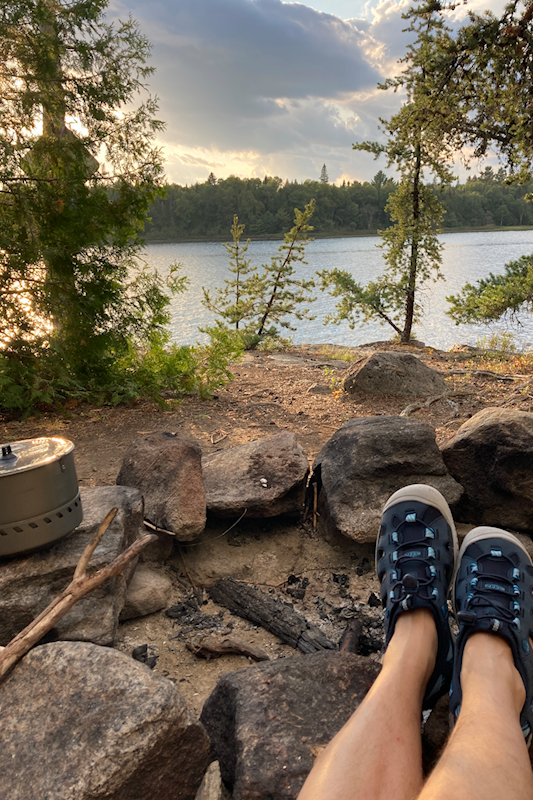
The funny thing that's happening in grad school
All of this is the backstory to help explain the irony of my experience so far in my grad school classes.
But before I tell you about the ironic thing it must be said that I self-selected for a particular program with a pedagogy aligned with my values and interests. It’s not like I’m in business school, or some other field which is financially focused. I’m in a secular, progressive, and left-leaning social sciences program. Which in some ways just adds to the irony of my experience.
Here’s a summary of the chief takeaways from my courses so far. Education of society’s youth, as a sociological endeavor, is a messy undertaking with complicated and conflicting motivations and outcomes for all parties involved. And I live in a society with many inherent problems that are perpetuated by and within formal schooling (as well as other systems and structures), and these problems are harming people’s lives on multiple levels. Schooling does a lot of good in society but it also causes harm and it needs critique and re-imagining.
I want to be clear that I am not a progressive sycophant and I carry a healthy dose of skepticism, directed at all angles of the arguments. I call “bullshit” on the radical-left notion that Western culture is the source of all evil in the modern world, just as I dismiss the obviously defunct, though once thriving notion that Western culture and ideas are inherently superior to others. Western culture is not the only one with problems, but this is the culture I know and live in. It’s the culture I feel most at liberty to critique with the aim of improvement, because of personal familiarity but also the widespread impact of this culture with globalization.
So I’ve been sitting in these grad school classes, reading academic articles and texts, writing papers and making presentations, listening to the honest lament of my colleagues about what little they can do as school teachers in response to these big societal problems. I’ve been asking “what is my response to these issues, where do I feel led (by Spirit, interest and natural inclination) to affect change?”
And the funny thing is that I feel a re-awakening of my original motivation as a young adult to live my own life and raise my own children with counter-cultural intention.
I’m remembering in a fresh flood of anecdotes and academia, a stirring in my belly and bones, why the heck I took this route in the first place - home birthing, stay at home mom and anti-establishment homeschooler, with all the attendant crunchy sensibilities. (Sensibilities that my grown children don’t always fully appreciate.)
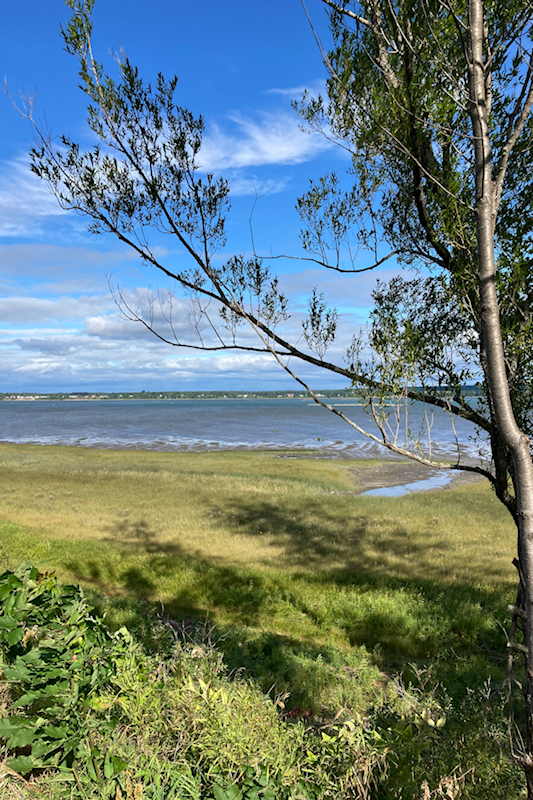
I was taking action where I felt I could affect the most change
I was trying to be a part of the solution to certain endemic problems in our society in a way that felt do-able for me, within my reach. I could live something different in my home and in my most important relationships.
So much of mainstream North American culture does not align with my values and so I feel a constant disconnect and cognitive dissonance and shame of my complicity with a system I don’t agree with, with the “powers and principalities” of the age. These values from which I feel disconnected and also complicit with are running us into the ground and literally creating a toxic environment on Earth. This is happening in our homes, our schools, our public discourse and politics. It’s happening in the very air we breathe.
I remember that I didn’t want to be a part of that system and steep my children in its toxicity. And so I homeschooled them. I choose to work within the realm of society that I felt I had the most influence for change, raising and educating my children.
I stood at the gateway of my home, full of idealistic fervor. And with all the determination I could muster in my 5’2” frame declared “you shall not pass” to those ideas I did not want shaping my children.
Did they pass? Of course they did!
They passed through my unintended and unconscious actions, they passed through my financial anxieties, and my anxiety in general. They passed through our personality quirks, failures, and sins. They passed through media and social media. They flowed through us and around us, eddying at the bulwarks of our good intentions.
But, but… those bulwarks slowed them down. The values we taught; the education and activities we provided rooted in interest not performance; the way we treated each other as beloved, valued, adored, protected, and known - exactly as you are; the way we parented with neither rewards or punishments; the way we cultivated safety, acceptance and love - all that slowed down the onslaught of our culture’s more toxic elements.
Turns out I’m an activist and I’ve been doing my activist work in my home and personal relationships for 20+ years. My privilege afforded me the opportunity to work in a realm where I felt I had real influence to make a difference.
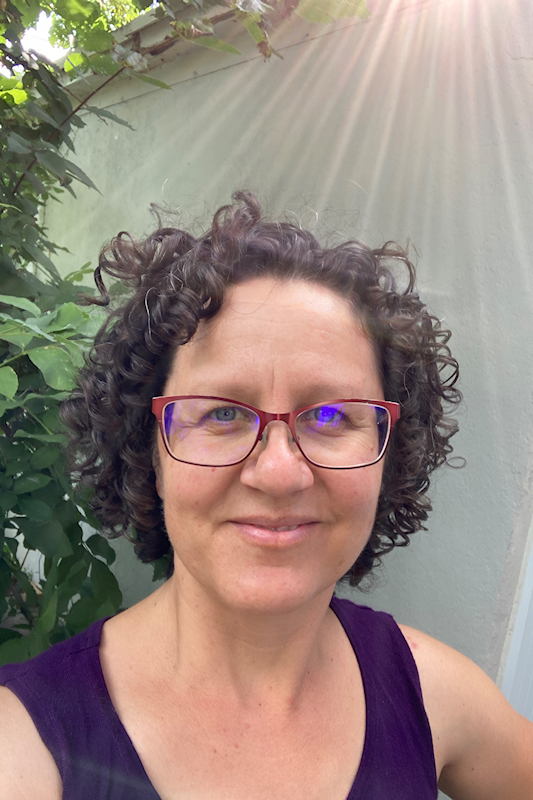
The affirmation of home-centered work
I raised children and created a safe home and a particular family environment that gave an enthusiastic and indifferent middle finger to some of the destructive elements of our culture. I took this to the point of deconstructing my own Christian religious beliefs that were perpetuating unhealthy power dynamics and an anti-Christ Us/Them dichotomy.
We are each other. We are the Earth. The Us/Them mentality brings out the worst in humans - creating a toxicity in ourselves, our communities, and on the Earth - because it separates us from our very selves.
I don’t know how I lost sight of the importance of this work. But I did. The shaking of my security in recent years was no doubt a big factor. We live in a tough and complicated world, that seems to do its best to grind us down. Its grinds our children, it grinds our very souls.
I knew this. I know this. Of course I wanted to homeschool my children. To create an environment that was the anti-thesis of the grind. A world that was love and delight, exploration and rest, interest and affection as the foundation for the hard work of living.
I took the action that was within my realm of possibility and I ran with it. Turns out I only needed to apply and be accepted to grad school, start paying a couple thousand dollars towards my education, to affirm what I’ve known and done all along.
My grad studies have turned my heart back to my home and the relationships therein. I’m in school looking for a means, for a path, to work my way up in world and it re-orients back me to home. Cue Alanis Morrisette.
I’m very curious about what my work will be in the wider world and I’m going to grad school to help me find that. But while that adventure is playing out, I’m experiencing a renewal of my commitment and conviction to act where it is most salient, in my immediate and intimate relationships.
As I am forced to confront and evaluate the world around me, through my formal studies and my personal engagement, there is a renewed commitment to care for the people in the hyper-local contexts of home and family.
The experience of raising, educating, and then navigating the young adult years with my children dampened the enthusiasm of some of my ideals from earlier years. Life wears you down. But as I face the economic and environmental realities of our world, in my studies and just by regularly reading the newspaper, as I consider the immense damage done to individuals and to Earth by status quo thinking, I’m remembering my Why.
This re-membering, this re-collecting of intention and action, is both affirming the work I’ve done and informing the work I hope to do.
It’s all I could have hoped for, and way more, in going back to school.
Filed Under
You can subscribe to comments on this article using this form.
If you have already commented on this article, you do not need to do this, as you were automatically subscribed.





